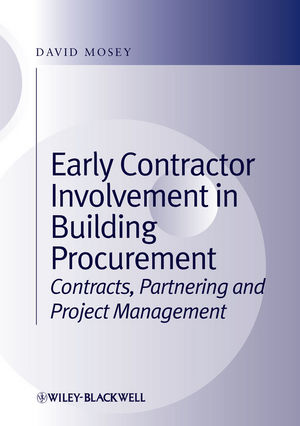We will be closed from 5pm Thursday 17th April for the Easter Bank Holidays, re-opening at 8.30am on Tuesday 22nd April. Any orders placed during this period will be processed when we re-open.

Can contractors and specialists add value to a project by their early involvement in design, pricing, risk management and programming? How can this be structured and what role do contracts have to play? What is the impact on procurement and project management?
Commentators from Banwell to Egan have recommended earlier contractor appointments, and this has also been linked to successful project partnering. How are the two related? Early Contractor Involvement in Building Procurement considers the case for a two stage procurement approach based on a system of agreed project processes during the preconstruction phase. It examines the ways in which a contract can describe and support this model throughout its procurement, partnering and project management, and is illustrated with case studies taken from projects and programmes across the construction and engineering industry.
The roles of the various parties involved, the obstacles they encounter and the benefits they can achieve are examined in detail. There is practical guidance on how to improve speed, economy, sustainability, change control, dispute avoidance, and client satisfaction. This book bridges the gap between contract law, partnering and project management and will be essential reading for middle and senior management at construction contractors, consultants and clients in both the public and private sectors.